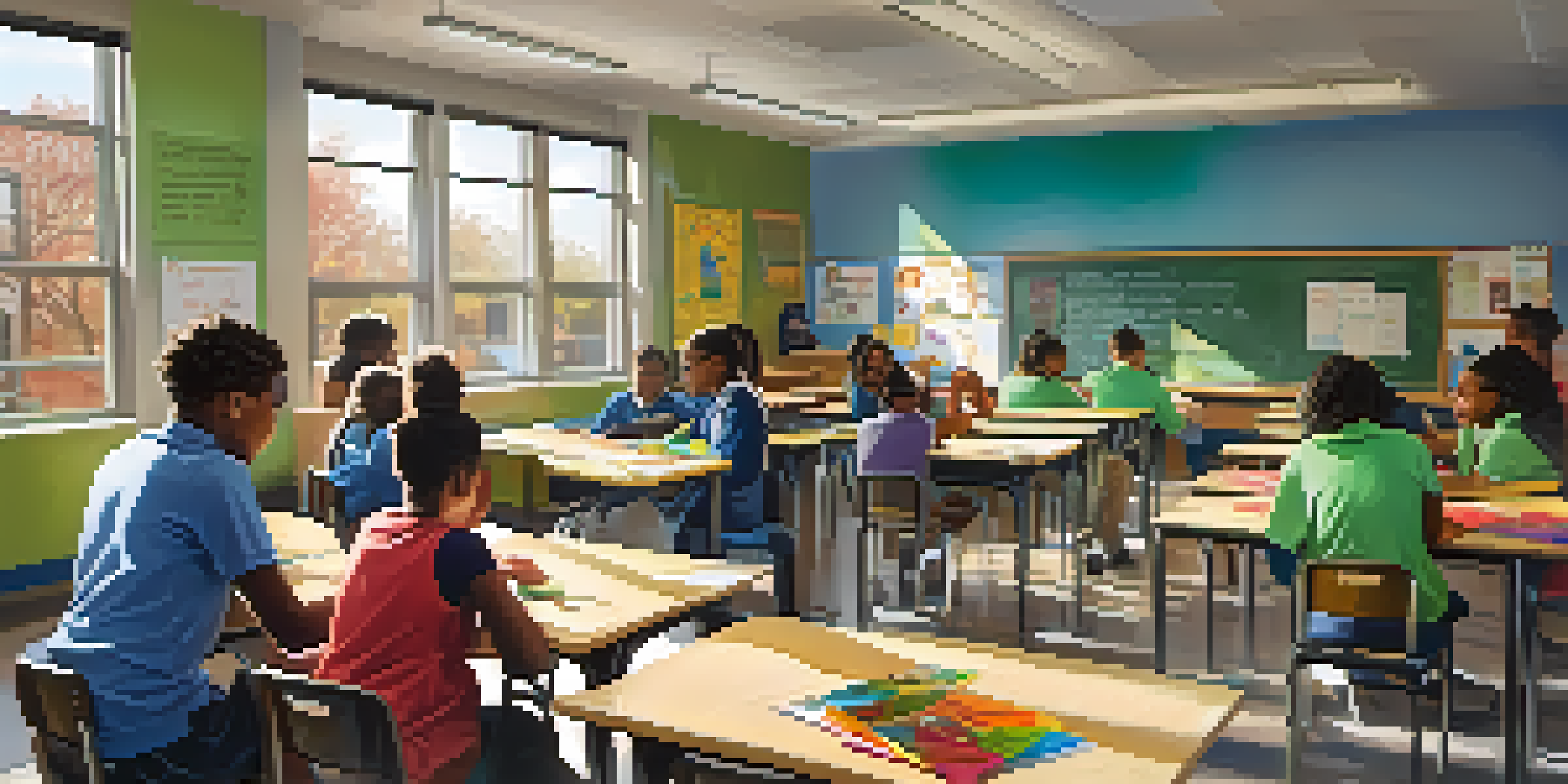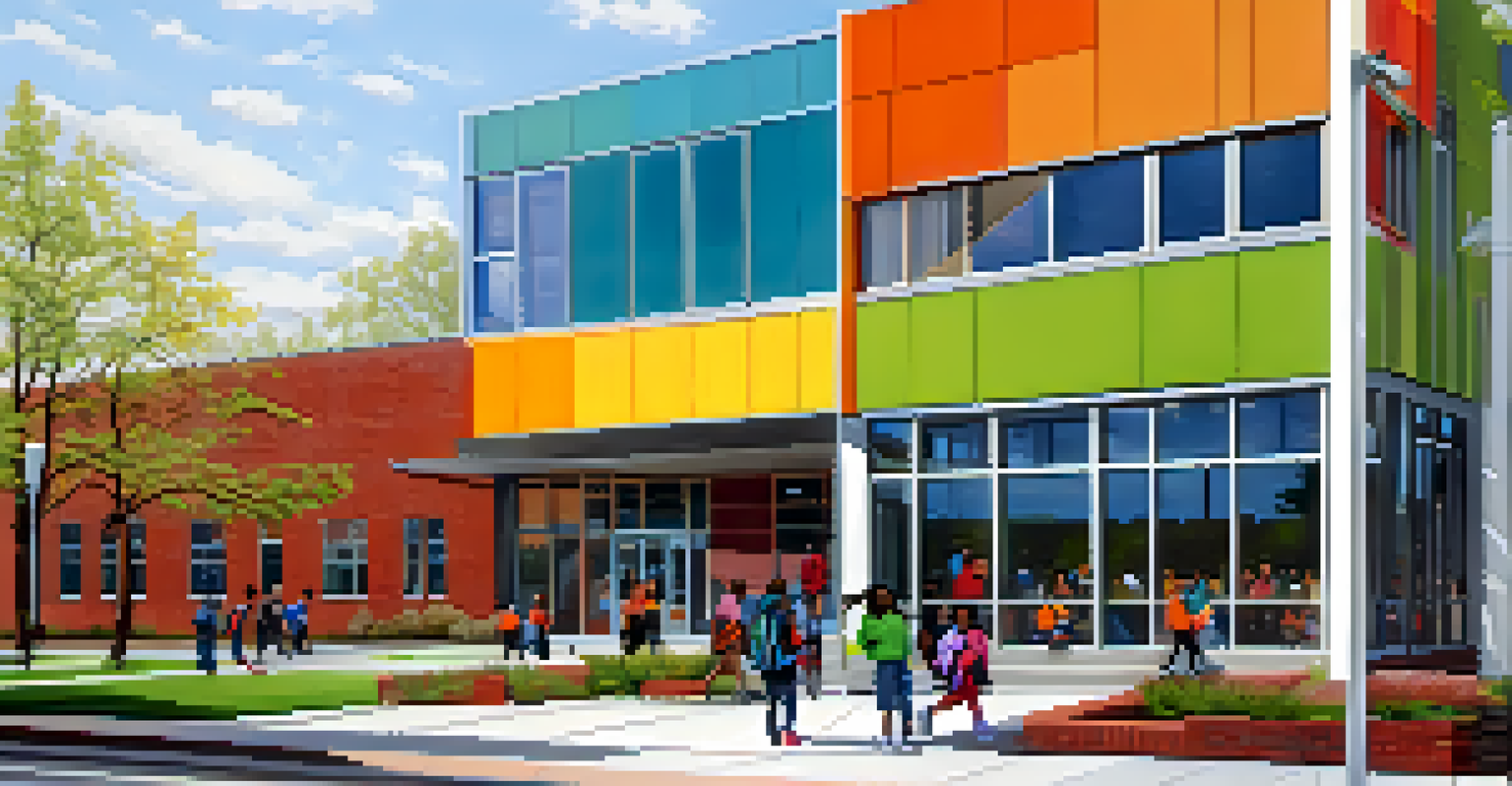Detroit's Charter Schools: A Model for Education Reform?

Understanding Charter Schools in Detroit
Charter schools are public schools that operate independently of the district. In Detroit, they have become a significant part of the education landscape, offering families alternative options to traditional public schools. With a mix of innovative teaching methods and flexible curricula, these schools aim to cater to diverse student needs and learning styles.
Education is the most powerful weapon which you can use to change the world.
The rise of charter schools in Detroit began in the early 1990s, coinciding with a broader movement across the United States. This shift was driven by the desire for more school choice and improved educational outcomes. Today, Detroit boasts one of the highest concentrations of charter schools in the nation, making it a unique case study in education reform.
However, the presence of charter schools in Detroit has sparked a variety of opinions. Supporters argue that they provide necessary competition and innovation, while critics raise concerns about accountability and funding disparities. Understanding this dynamic is crucial for evaluating their impact on the overall education system.
The Growth of Charter Schools in Detroit
Over the past few decades, Detroit has experienced a dramatic increase in charter school enrollment. Currently, nearly half of the city's public school students attend charter schools, highlighting a significant shift in educational preferences. This growth reflects parents' desire for more personalized and effective educational options for their children.

Many charter schools in Detroit have distinguished themselves by offering specialized programs, such as STEM (Science, Technology, Engineering, and Mathematics) education or arts integration. These programs can attract families looking for unique educational opportunities. As a result, some charter schools have seen remarkable success in preparing students for college and careers.
Charter Schools Offer Educational Choice
In Detroit, charter schools provide families with alternative educational options, reflecting a significant shift in student enrollment preferences.
However, this rapid expansion has not come without challenges. Issues like resource allocation, student performance disparities, and the overall quality of education remain pressing concerns. Addressing these challenges is essential for ensuring that charter schools continue to serve as a viable option for Detroit families.
Innovative Teaching Models in Charter Schools
One of the hallmarks of Detroit's charter schools is their commitment to innovative teaching models. Many schools have embraced project-based learning, where students engage in hands-on projects that foster critical thinking and collaboration. This approach helps students develop real-world skills that are essential in today’s job market.
The function of education is to teach one to think intensively and to think critically. Intelligence plus character—that is the goal of true education.
Another notable trend is the integration of technology into the classroom. Charter schools often utilize digital learning tools to enhance student engagement and personalize education. Programs that incorporate online learning platforms allow students to learn at their own pace, catering to individual learning needs and preferences.
These innovative practices have the potential to reshape traditional educational paradigms. By prioritizing creativity and adaptability, charter schools in Detroit are setting a new standard for what education can look like. This focus on modern teaching methods could serve as a model for reform in other educational systems across the country.
Accountability and Performance Metrics
Accountability is a critical aspect of the charter school system. Unlike traditional public schools, charter schools operate under performance contracts, known as charters, which outline specific goals and standards. If these goals are not met, the school may face closure, ensuring that only effective schools remain in operation.
Performance metrics vary widely across charter schools, making it essential for parents to research and understand each school's track record. Standardized testing results, graduation rates, and college acceptance statistics are common indicators of a school's success. By examining these metrics, families can make informed decisions about their children's education.
Innovative Teaching Models Shine
Many charter schools in Detroit utilize project-based learning and technology integration to enhance student engagement and prepare them for future careers.
However, the reliance on standardized testing has sparked debate about the true measure of educational success. Critics argue that test scores do not capture the full picture of a student's learning experience. As such, many charter schools are exploring alternative assessment methods to provide a more holistic view of student achievement.
Equity and Access in Education
Equity in education is a pressing concern, especially in a city like Detroit, where socio-economic disparities are pronounced. While charter schools aim to provide quality education, access to these schools can be uneven. Families in lower-income neighborhoods may face barriers, such as transportation issues or limited knowledge about school options.
Efforts to address these disparities have emerged, with some charter schools implementing recruitment strategies aimed at underrepresented communities. Additionally, partnerships with local organizations can help bridge the gap, providing resources and support to families seeking educational opportunities for their children.
Ultimately, ensuring equitable access to quality education is essential for the success of Detroit's charter schools. By prioritizing inclusion and accessibility, these schools can better serve all students, paving the way for a more equitable future.
Community Impact of Charter Schools
The presence of charter schools in Detroit has a significant impact on the local community. These schools often engage in community-building initiatives, fostering relationships with families and local organizations. By hosting events and providing resources, charter schools can become vital community hubs that extend their influence beyond the classroom.
Moreover, successful charter schools can help revitalize neighborhoods by attracting families and businesses. As more families choose to live near quality schools, the demand for housing and local services can increase, leading to economic growth. This transformation can have a positive ripple effect on the overall community.
Equity and Access Remain Challenges
Despite their growth, charter schools in Detroit face challenges related to equitable access, particularly for families in lower-income neighborhoods.
However, the relationship between charter schools and local communities can be complex. While some view charter schools as a source of positive change, others express concerns about gentrification and displacement. Balancing the benefits of charter schools with the needs of existing residents is crucial for fostering a thriving community.
The Future of Charter Schools in Detroit
Looking ahead, the future of charter schools in Detroit remains uncertain yet promising. As educational needs evolve, charter schools will need to adapt and innovate continually. This includes staying responsive to community feedback and student performance data to ensure they are meeting the needs of their students effectively.
Additionally, the role of policymakers will be crucial in shaping the landscape of charter schools. Supportive legislation and funding can help sustain successful schools while addressing the challenges that come with rapid growth. Ensuring a balanced approach will be vital for the sustainability of this educational model.

Ultimately, Detroit's charter schools have the potential to serve as a model for education reform across the nation. By prioritizing innovation, accountability, and community engagement, they can contribute to a brighter future for students in Detroit and beyond.